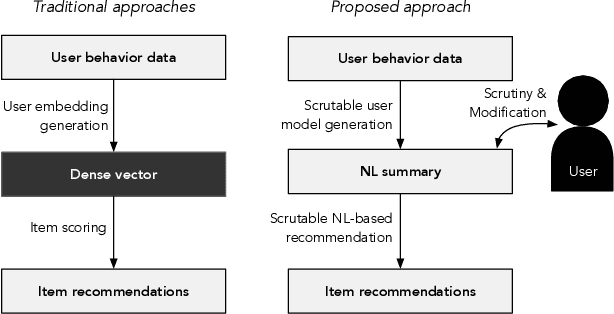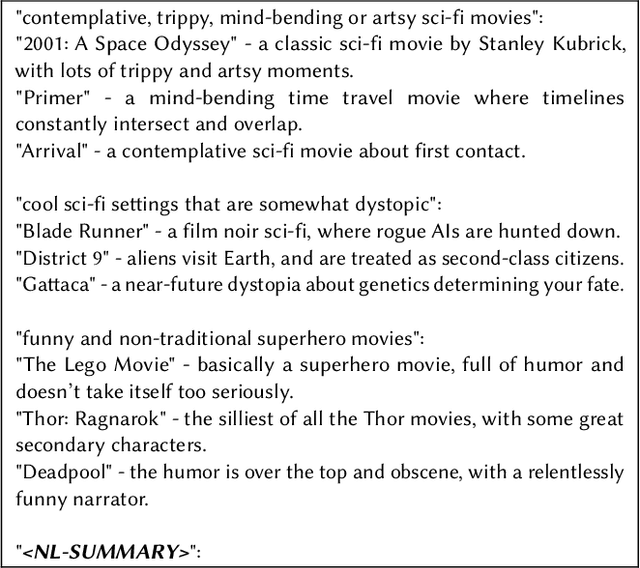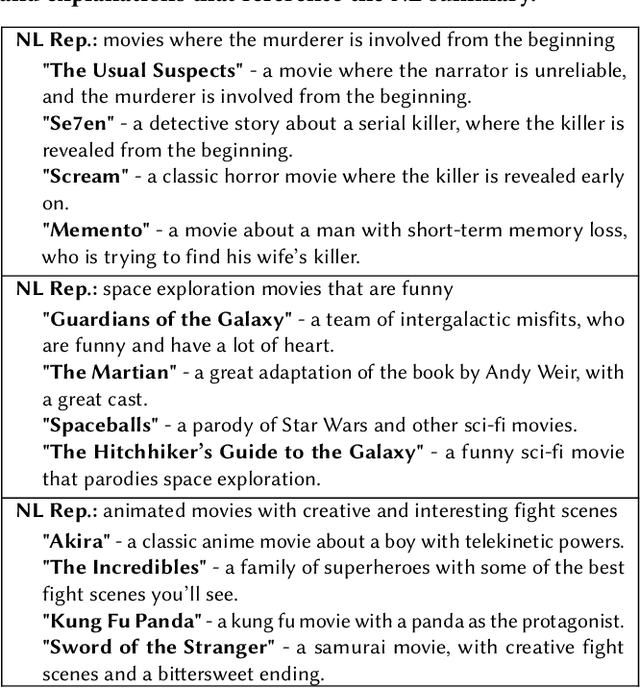On Natural Language User Profiles for Transparent and Scrutable Recommendation
Paper and Code
May 19, 2022



Natural interaction with recommendation and personalized search systems has received tremendous attention in recent years. We focus on the challenge of supporting people's understanding and control of these systems and explore a fundamentally new way of thinking about representation of knowledge in recommendation and personalization systems. Specifically, we argue that it may be both desirable and possible for algorithms that use natural language representations of users' preferences to be developed. We make the case that this could provide significantly greater transparency, as well as affordances for practical actionable interrogation of, and control over, recommendations. Moreover, we argue that such an approach, if successfully applied, may enable a major step towards systems that rely less on noisy implicit observations while increasing portability of knowledge of one's interests.
 Add to Chrome
Add to Chrome Add to Firefox
Add to Firefox Add to Edge
Add to Edge